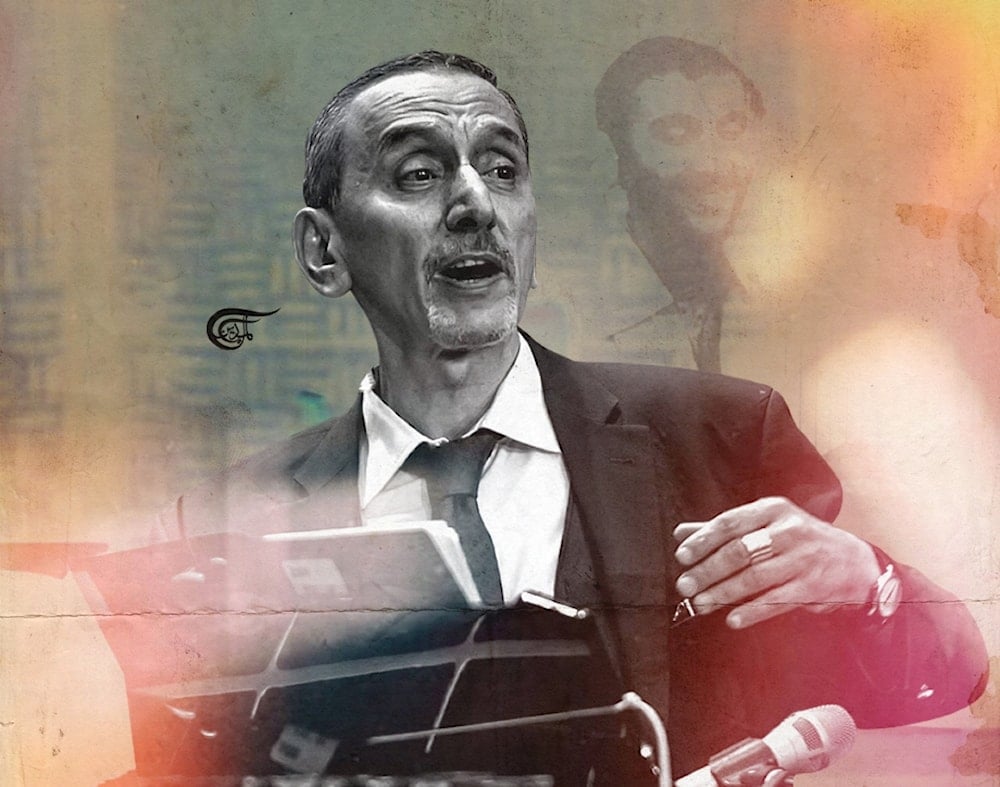End of an era: Lebanon bids farewell to legendary artist Ziad Rahbani
The curtain falls and the microphone goes silent, as Lebanon bids farewell to Ziad Rahbani, the son of Fairuz and Assi Rahbani, who died at 69.
-

Renowned Lebanese artist Ziad Rahbani. (Illustrated by: Al Mayadeen English/Zeinab al-Hajj
Renowned Lebanese artist Ziad Rahbani passed away on Saturday, at the age of 69. Born on January 1, 1956, in Antelias, Lebanon, Rahbani was the son of two legendary figures in Arab art: his father, composer Assi Rahbani, and his mother, the iconic singer Fairuz.
From a young age, Rahbani’s artistic path was shaped by his family’s deep roots in music and culture. Yet, he carved out his distinct voice, one that blended artistic innovation with political consciousness. His first literary work came at just 12 years old, marking the beginning of a prolific career that would span theater, journalism, music, and political commentary.
Legendary Lebanese artist, playwright, composer, and song artist Ziad al-Rahbani, the son of Lebanese singer #Fairuz and Mansour al-Rahbani, passed away earlier this morning.
— Al Mayadeen English (@MayadeenEnglish) July 26, 2025
Rahbani had always been vocal about his political stances, and remained throughout the years an advocate… pic.twitter.com/gpjTehXx9G
Ziad Rahbani emerged as one of the most influential voices in Lebanese political art, known for challenging authority and societal norms through sharp satire and cultural critique. His theater works in the 1970s and 1980s broke new ground in the region, addressing themes of identity, politics, corruption, and resistance with both humor and gravity.
Among his most notable works are:
- Sahriya (1973)
- Nazl Al-Surur (1974)
- Bil Nisbi la Bokra Shou? (1978)
- Film Ameriki Tawil (1980)
- Shi Feshil (1983)
- Bi Khsous Al-Karameh wa Al-Sha’b Al-Aneed (1993)
These plays became cultural landmarks in Lebanon and the wider Arab world, praised for their fearless engagement with social and political realities.
A bold voice in Lebanese political art
Outside the theater, Rahbani was a prolific radio journalist and columnist, contributing to newspapers such as al-Nidaa, an-Nahar, and al-Akhbar. His satirical broadcasts and written work tackled politics, social injustice, and state corruption with a signature blend of intellect and irony.
Rahbani was known for his leftist political views and his affiliation with the Lebanese Communist Party. He was a vocal supporter of the Palestinian cause and the broader movement of Arab resistance, especially in defense of the people of southern Lebanon.
Throughout his life, Rahbani remained unafraid to challenge prevailing narratives, whether cultural, political, or sectarian. His legacy is not only artistic but ideological: a life dedicated to music, theatre, and the unwavering defense of the oppressed.

 2 Min Read
2 Min Read










